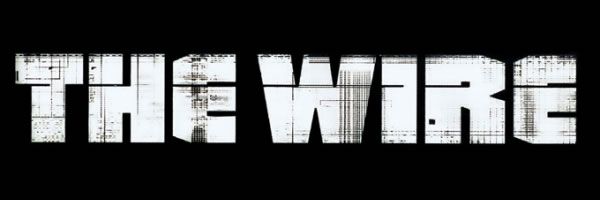Up until the past 15 years or so, television series were firmly episodic. Serialized TV (outside of mini-series) risked alienating viewers since it stopped anyone from coming in mid-season. However, with the rise of DVDs, OnDemand, and digital downloads, serialized TV series have become firmly established. Some shows still retain an episodic nature, but some series—particularly dramas—have been built around telling one long story over the course of an entire season. Our new feature, Seasoned, will review a TV series by season rather than by episode.Hit the jump for my review of the second season of The Wire, and click here for my review of season one.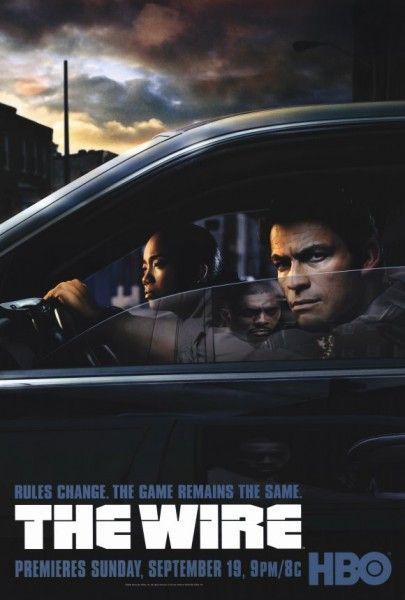 [Warning: Spoilers Ahead]The first season of The Wire set up two factions: the cops and the criminals, but there were also glimpses of the world's scope. We saw the bureaucracy and political wrangling within the Baltimore Police Department, and we saw how the money in Avon Barksdale's operation flowed beyond the drug trade and into political corruption. Creator David Simon also set up strong themes relating to ethics, morality, and if actions still have meaning if they can't affect change in either society or in individuals. Jimmy McNulty (Dominic West) can tirelessly work a case, but at the end of the day he's still a selfish, childish, and self-destructive prick. Despite his penchant for self-sabotage, he did end season one with a smug look of self-congratulation when he lost his homicide gig but at least got an easy gig working in the marine unit.Season two picks up several months after the season one finale, and two new factions are thrown into the mix: the stevedores and international criminals. Frank Sobotka (Chris Bauer giving a powerful performance) is the head of his union of dockworkers, and he knows their jobs are vanishing. In order to raise the funds to lobby Baltimore congressmen so they'll fund a new canal (meaning more jobs for the union), Frank gets in bed with European gangsters "The Greek" (Bill Raymond) and Spiros "Vondas" Vondopoulos (Paul Ben-Victor). Frank agrees to help them smuggle in containers of contraband with no questions asked about what's in the cans. Meanwhile, Sobotka's smart nephew Nick (Pablo Schreiber) and idiot son Ziggy (James Ransone) have independently worked a deal with Vondas to smuggle other contraband, specifically chemicals used for manufacturing narcotics, through the docks. Ziggy does it because he's stupid and thinks it will get him respect, and Nick does it because he wants to build a life for himself, and he can't do it honestly because working hours on the docks always goes to seniority.
[Warning: Spoilers Ahead]The first season of The Wire set up two factions: the cops and the criminals, but there were also glimpses of the world's scope. We saw the bureaucracy and political wrangling within the Baltimore Police Department, and we saw how the money in Avon Barksdale's operation flowed beyond the drug trade and into political corruption. Creator David Simon also set up strong themes relating to ethics, morality, and if actions still have meaning if they can't affect change in either society or in individuals. Jimmy McNulty (Dominic West) can tirelessly work a case, but at the end of the day he's still a selfish, childish, and self-destructive prick. Despite his penchant for self-sabotage, he did end season one with a smug look of self-congratulation when he lost his homicide gig but at least got an easy gig working in the marine unit.Season two picks up several months after the season one finale, and two new factions are thrown into the mix: the stevedores and international criminals. Frank Sobotka (Chris Bauer giving a powerful performance) is the head of his union of dockworkers, and he knows their jobs are vanishing. In order to raise the funds to lobby Baltimore congressmen so they'll fund a new canal (meaning more jobs for the union), Frank gets in bed with European gangsters "The Greek" (Bill Raymond) and Spiros "Vondas" Vondopoulos (Paul Ben-Victor). Frank agrees to help them smuggle in containers of contraband with no questions asked about what's in the cans. Meanwhile, Sobotka's smart nephew Nick (Pablo Schreiber) and idiot son Ziggy (James Ransone) have independently worked a deal with Vondas to smuggle other contraband, specifically chemicals used for manufacturing narcotics, through the docks. Ziggy does it because he's stupid and thinks it will get him respect, and Nick does it because he wants to build a life for himself, and he can't do it honestly because working hours on the docks always goes to seniority.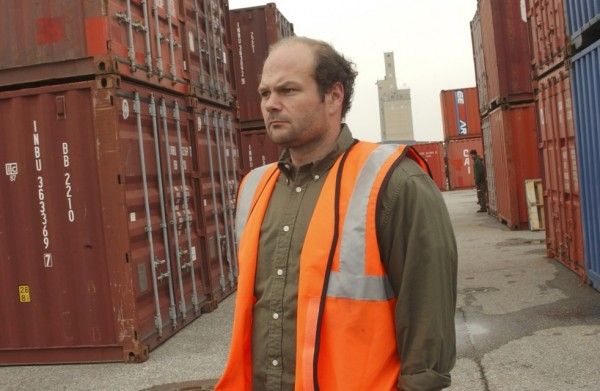 Unfortunately for Frank, one of the cans contained 13 prostitutes who suffocated under suspicious circumstances. When 12 of the bodies are discovered by port authority officer Beadie Russell (Amy Ryan) and a floater is pulled out of the bay by McNulty, the wayward homicide detective puts together evidence of murder and that they occurred under the jurisdiction of the Baltimore Police Department. It's a small prank for McNulty and a fuck you to Rawls (John Doman), but Bunk (Wendell Pierce) and Freamon (Clarke Peters) end up getting stuck with the case. Meanwhile, Daniels' (Lance Reddick) detail is reunited by police Major Stan Valchek (Al Brown) who wants to investigate Sobotka not out of a desire for justice, but to get petty revenge over Sobotka getting premium space in their church for a donated stained glass window.These are the social observations and workings mixed into season two. Each season has an unofficial name (season three is "politics"; season four is "the schools"; season five is "the newspaper"), and season two is commonly referred to as "the docks". However, the docks really stand for any plight of all the working class. It could have easily been auto-workers if The Wire took place in Detroit. Unlike Barksdale's crew, crime isn't a desired way of life for the Sobotkas. It's a means to an end; an end they can no longer reach because of economic hardship. The plight of the stevedores dispels the Horatio Alger myth that hard work will yield financial success.
Unfortunately for Frank, one of the cans contained 13 prostitutes who suffocated under suspicious circumstances. When 12 of the bodies are discovered by port authority officer Beadie Russell (Amy Ryan) and a floater is pulled out of the bay by McNulty, the wayward homicide detective puts together evidence of murder and that they occurred under the jurisdiction of the Baltimore Police Department. It's a small prank for McNulty and a fuck you to Rawls (John Doman), but Bunk (Wendell Pierce) and Freamon (Clarke Peters) end up getting stuck with the case. Meanwhile, Daniels' (Lance Reddick) detail is reunited by police Major Stan Valchek (Al Brown) who wants to investigate Sobotka not out of a desire for justice, but to get petty revenge over Sobotka getting premium space in their church for a donated stained glass window.These are the social observations and workings mixed into season two. Each season has an unofficial name (season three is "politics"; season four is "the schools"; season five is "the newspaper"), and season two is commonly referred to as "the docks". However, the docks really stand for any plight of all the working class. It could have easily been auto-workers if The Wire took place in Detroit. Unlike Barksdale's crew, crime isn't a desired way of life for the Sobotkas. It's a means to an end; an end they can no longer reach because of economic hardship. The plight of the stevedores dispels the Horatio Alger myth that hard work will yield financial success.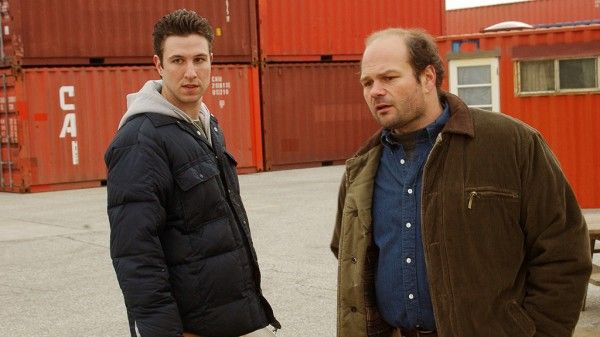 Frank Sobotka is clearly a man who has worked hard all of his life, earned the respect of his peers, and loves his job and his stevedore brothers with all his heart. He's turned to crime not for the glamour or because it's easier. "No one's doing this out of love," the Greek tells Frank at one point. But for Frank, his criminal dealings are done partially out of love and partially to cling to his sense of identity. If he's not a stevedore, who is he?Once again, we have characters wrestling with an identity that's been created by unyielding external influences. If the world is static, then we once again come to the question of whether or not an individual can change or if the world will punish him or her for rebellion. This conflict permeates all aspects of the show's different societies, but it's highlighted in Barksdale's criminal organization. The conflict between the detail and Barskdale's operation was the nitty-gritty of season one, but the dissolution of that conflict resets the focus of Barksdale's crew onto thematic issues. There's still plot developments relating to Stringer (Idris Elba) overseeing the day-to-day of the operation while Avon (Wood Harris) is in prison, but it doesn't amount to more than the mutually beneficial business dealings between the westside supplying the real estate and eastside drug kingpin Proposition Joe (Robert F. Chew) supplying the product. Even the "wire" that connects Prop Joe to the Greek (and therefore the detail) doesn't have much pull.
Frank Sobotka is clearly a man who has worked hard all of his life, earned the respect of his peers, and loves his job and his stevedore brothers with all his heart. He's turned to crime not for the glamour or because it's easier. "No one's doing this out of love," the Greek tells Frank at one point. But for Frank, his criminal dealings are done partially out of love and partially to cling to his sense of identity. If he's not a stevedore, who is he?Once again, we have characters wrestling with an identity that's been created by unyielding external influences. If the world is static, then we once again come to the question of whether or not an individual can change or if the world will punish him or her for rebellion. This conflict permeates all aspects of the show's different societies, but it's highlighted in Barksdale's criminal organization. The conflict between the detail and Barskdale's operation was the nitty-gritty of season one, but the dissolution of that conflict resets the focus of Barksdale's crew onto thematic issues. There's still plot developments relating to Stringer (Idris Elba) overseeing the day-to-day of the operation while Avon (Wood Harris) is in prison, but it doesn't amount to more than the mutually beneficial business dealings between the westside supplying the real estate and eastside drug kingpin Proposition Joe (Robert F. Chew) supplying the product. Even the "wire" that connects Prop Joe to the Greek (and therefore the detail) doesn't have much pull.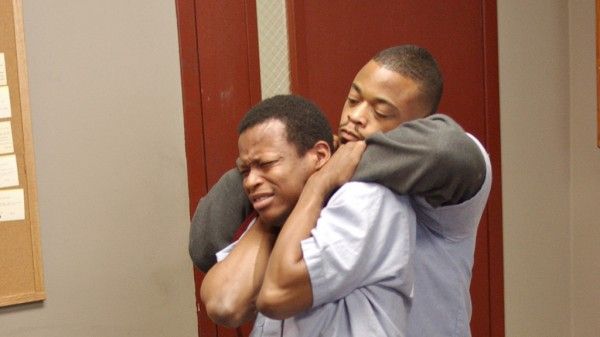 Instead, Simon and his writers give the season one criminals something far more grand and operatic. The life on the side of Barksdale's crew feels absolutely Shakespearean in season two, and their story provides more support to the argument that The Wire is literature in television form. It's tough to dispute that argument when you reach the episode "All Prologue" (easily one of my favorite episodes so far), and you have D'Angelo (Larry Gilliard) in a prison book group talking about the themes of The Great Gatsby, specifically, how a person can assume a new identity, but they can never escape who they truly are. D'Angelo wants to leave the game, but he missed his chance on the outside, and his resentment of Avon and prison life leads Stringer to believe that the young man will turn State's Evidence. This chain of events leads to Stringer having D'Angelo assassinated in prison, and having the murder look like a suicide.It's moments like these when the show becomes more than just a hard look at life in Baltimore. If I told you about a plot where a steward assassinates the king's nephew when the king and the nephew are both imprisoned, it would sound like something out of a Shakespeare play. Stringer's duplicity deepens when he tricks Omar (Michael K. Williams)—a sworn enemy—into trying to take down Brother Mouzone (Michael Potts), a deadly hitter who's unnecessarily hired by Avon to stop Prop Joe's encroachment because Avon doesn't know that Stringer has already arranged an agreement with the eastside drug lord.
Instead, Simon and his writers give the season one criminals something far more grand and operatic. The life on the side of Barksdale's crew feels absolutely Shakespearean in season two, and their story provides more support to the argument that The Wire is literature in television form. It's tough to dispute that argument when you reach the episode "All Prologue" (easily one of my favorite episodes so far), and you have D'Angelo (Larry Gilliard) in a prison book group talking about the themes of The Great Gatsby, specifically, how a person can assume a new identity, but they can never escape who they truly are. D'Angelo wants to leave the game, but he missed his chance on the outside, and his resentment of Avon and prison life leads Stringer to believe that the young man will turn State's Evidence. This chain of events leads to Stringer having D'Angelo assassinated in prison, and having the murder look like a suicide.It's moments like these when the show becomes more than just a hard look at life in Baltimore. If I told you about a plot where a steward assassinates the king's nephew when the king and the nephew are both imprisoned, it would sound like something out of a Shakespeare play. Stringer's duplicity deepens when he tricks Omar (Michael K. Williams)—a sworn enemy—into trying to take down Brother Mouzone (Michael Potts), a deadly hitter who's unnecessarily hired by Avon to stop Prop Joe's encroachment because Avon doesn't know that Stringer has already arranged an agreement with the eastside drug lord.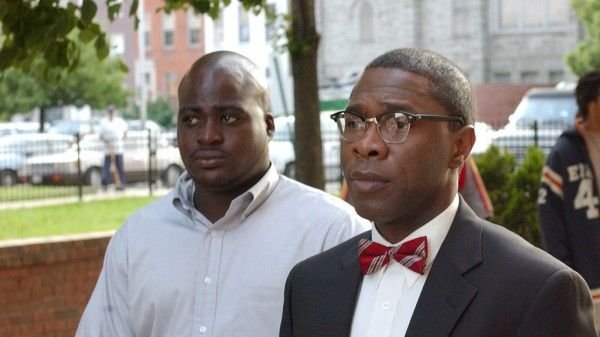 Season one was almost anti-glamour in how it attempted to weave in the dramatic aspects of the story, but season two plays with a bit more flair albeit to varying levels of success. Brother Mouzone feels too contrived—he's a hitman who's a Muslim and wears a suit, bowtie, and glasses. It's almost as if the writers wanted to create a character as colorful as Omar, except Omar feels like a product of the world. Mouzone is amusing ("The most dangerous thing in America," quips Mouzone," is a nigga with a library card."), but he doesn't feel honest.By contrast, Omar continues to be amazing. His courtroom scene in "All Prologue" is unforgettable, and it highlights how The Wire finally began to develop a sense of humor in season two. After all, the catalyst for the investigation is because Valchek has a petty dispute with Frank Sobotka over a stained glass window and a prank involving a surveillance van. It's tragic when Sobotka ends up floating dead in the bay at the end of the season as a result of Valcheck only wanting a little dirt on the union boss, but it's also darkly comic.Season two's only major problem other than Mouzone is in getting the plot moving. The detail is broken up at the end of season one, which is a realistic conclusion to how the BPD would use such an operation. However, this means the show has to spend a third of the season bringing the group back together. It's an instance where adhering to the reality of the world means sacrificing narrative efficiency. We want to see the detail reunited and we want to see them working the case.
Season one was almost anti-glamour in how it attempted to weave in the dramatic aspects of the story, but season two plays with a bit more flair albeit to varying levels of success. Brother Mouzone feels too contrived—he's a hitman who's a Muslim and wears a suit, bowtie, and glasses. It's almost as if the writers wanted to create a character as colorful as Omar, except Omar feels like a product of the world. Mouzone is amusing ("The most dangerous thing in America," quips Mouzone," is a nigga with a library card."), but he doesn't feel honest.By contrast, Omar continues to be amazing. His courtroom scene in "All Prologue" is unforgettable, and it highlights how The Wire finally began to develop a sense of humor in season two. After all, the catalyst for the investigation is because Valchek has a petty dispute with Frank Sobotka over a stained glass window and a prank involving a surveillance van. It's tragic when Sobotka ends up floating dead in the bay at the end of the season as a result of Valcheck only wanting a little dirt on the union boss, but it's also darkly comic.Season two's only major problem other than Mouzone is in getting the plot moving. The detail is broken up at the end of season one, which is a realistic conclusion to how the BPD would use such an operation. However, this means the show has to spend a third of the season bringing the group back together. It's an instance where adhering to the reality of the world means sacrificing narrative efficiency. We want to see the detail reunited and we want to see them working the case.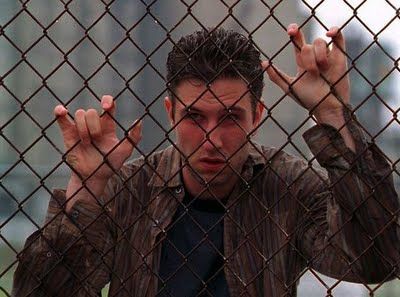 Thankfully, when season two finally hits its stride ("All Prologue"), the show begins to deliver on the staggering promise of season one. The second season of The Wire didn't just expand the narrative scope of the show. It expanded the dramatic power and built on the themes established in the first season. The climactic episodes of season two continue to hammer home the theme of moving forward in the face of futility. It's a story that's both hopeful and depressing at the same time. Like the Barksdale organization, The Greek and Vondas' operation are far too nimble for the Baltimore Police Department. The detail can sweep up the soldiers, but bureaucracies and politicking prevent the capture of the main targets, sabotages the investigation from the FBI's end, and this reliance on paperwork contributes to Frank's death since he has to wait a day to deliver his testimony. And like we saw in the season one finale when drugs were being sold even after Barksdale was arrested, we see prostitutes being unloaded out of container at the end of season two. A case was solved, but not the problem. The problem can never be "solved."The Wire's second season culminates in a closing montage set to Steve Earle's "Feel Alright" and it absolutely gave me chills. We see how every character continues to live their life, who among them managed to grow, who remains trapped, and how their world remains the same as it ever was. Season two ends with a perfect moment of Nick, who has escaped prosecution but lost the ability to support his family along with his uncle, grabbing on to a chain link fence, literally facing the dying docks and figuratively caged by his circumstances. But that's the second to last image. The final image is Nick turning away from the docks, and walking down the road towards an uncertain future. He, like so many other characters in The Wire, is both free and trapped, continuing to move forward but never making any progress.
Thankfully, when season two finally hits its stride ("All Prologue"), the show begins to deliver on the staggering promise of season one. The second season of The Wire didn't just expand the narrative scope of the show. It expanded the dramatic power and built on the themes established in the first season. The climactic episodes of season two continue to hammer home the theme of moving forward in the face of futility. It's a story that's both hopeful and depressing at the same time. Like the Barksdale organization, The Greek and Vondas' operation are far too nimble for the Baltimore Police Department. The detail can sweep up the soldiers, but bureaucracies and politicking prevent the capture of the main targets, sabotages the investigation from the FBI's end, and this reliance on paperwork contributes to Frank's death since he has to wait a day to deliver his testimony. And like we saw in the season one finale when drugs were being sold even after Barksdale was arrested, we see prostitutes being unloaded out of container at the end of season two. A case was solved, but not the problem. The problem can never be "solved."The Wire's second season culminates in a closing montage set to Steve Earle's "Feel Alright" and it absolutely gave me chills. We see how every character continues to live their life, who among them managed to grow, who remains trapped, and how their world remains the same as it ever was. Season two ends with a perfect moment of Nick, who has escaped prosecution but lost the ability to support his family along with his uncle, grabbing on to a chain link fence, literally facing the dying docks and figuratively caged by his circumstances. But that's the second to last image. The final image is Nick turning away from the docks, and walking down the road towards an uncertain future. He, like so many other characters in The Wire, is both free and trapped, continuing to move forward but never making any progress.

